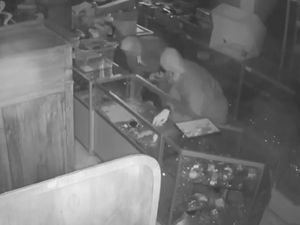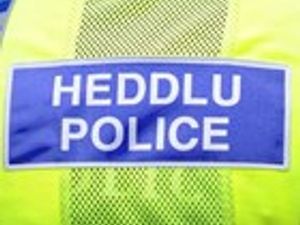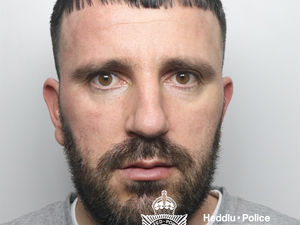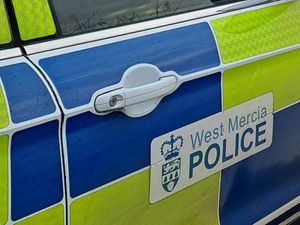Telford Black Dragon hacker Matthew Beddoes jailed over £7m plot
A computer hacker from Telford involved in a plot to steal almost £7 million worth of carbon credits has been jailed for three-and-a-half years.

Matthew Beddoes, who called himself the 'Black Dragon', 'Cyber Commander' and 'Secret Squirrel', had targeted websites and carbon credit registers held by the United Nations, banks and European governments.
He was said to have been rewarded for helping provide potential fraudsters access to sensitive and confidential data in the multi-national conspiracy.
Beddoes' activities also included obtaining thousands of credit card numbers and the personal details of people living in the USA, Canada and Europe.
At Kingston-upon-Thames Crown Court yesterday, Beddoes was jailed for two years and nine months after admitting 13 offences under the Computer Misuse Act 1990 committed between June and November, 2011.
Judge Nicholas Price QC jailed Beddoes for a further nine months for gaining access to the internet and transferring images while on remand in custody awaiting sentence.
The court heard that the principal target of the conspiracy had been carbon credit certificates said to be worth around eight million euros which were held in the United Nations' central registry in Bonn and by the Spanish government.
Mr Thomas Forster, prosecuting, said that in October 2011 there was an unauthorised transfer of about 350,000 European Union Allowances (carbon credits) worth £3 million from the Spanish registry to a UK-registered broker.
More than 8,000 were later sold to an unsuspecting third party for £80,000 which was paid into Hong Kong bank accounts. The Spanish authorities were alerted and the remaining credits were frozen.
In the same month an attempt was made to illegally transfer more than 425,000 Emission Reduction Certificates, another form of carbon credits, worth £3.2 million, from the United Nations registry.
This scheme was thwarted when administrators noticed the use of an incorrect account number.
In May last year Beddoes, formerly of Jubilee Avenue in Donnington, had pleaded guilty to 13 offences – five of conspiring to do unauthorised acts with intent to impair computer programmes, four of unauthorised access to business computers and one charge of acquiring criminal property, namely money, under the Proceeds of Crime Act.
He had also admitted three charges of possessing electronic files containing identity information by creating 'phishing' websites to fool customers into revealing account and login details.
Beddoes had obtained business usernames and passwords, about 3,000 credit card 16 digit numbers, security codes and start and expiry dates and the identity documents for seven USA, Canadian, UK and Dutch citizens, involving passport scans, birth certificates and utility bills.
He had faced a total of 35 charges following an investigation by the Serious & Organized Crime Agency. The 22 charges he denied were ordered to lie on file.
Beddoes' activities first came to light in late 2011.
He was arrested in November and appeared briefly at Telford Magistrates Court in connection with the offences before the case was transferred to Liverpool and Kingston-upon-Thames.
At the time a spokesman for the Serious and Organised Crime Agency said Beddoes had been charged in connection with the alleged hacking of data in relation to carbon credits, but added that officers investigating the case had not identified anyone else involved in the plot.
Also before the court yesterday were two other men – Jasdeep Singh Randhawa, 38, and Jandeep Singh Sangha, 28, both from Leicester, who faced similar charges.
Randhawa, who used the online identities 'Jugga' and 'Jayson', was jailed for 21 months for four offences of conspiracy and Sangha was given a 12-month sentence, suspended for two years, fined £1,000 and ordered to do 120 hours unpaid work, for two offences of money-laundering.
Carbon credits are part of an international scheme to encourage the reduction of greenhouse gases and are tradable certificates – each valued between £8 and £12.
The certificates permit the holder to emit a tonne of carbon dioxide and are sold to commercial customers interested in providing a lower carbon footprint.





